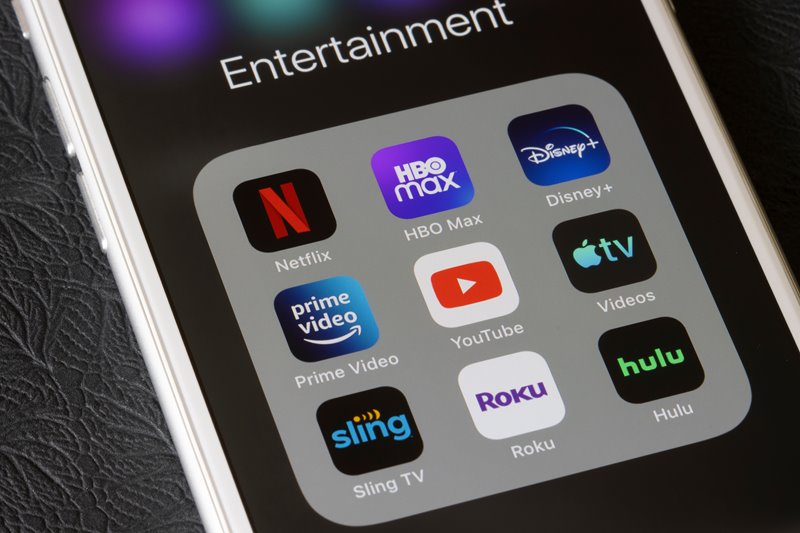AI ate my novel: Copyright in the age of large language models
By Timothy Seton and Clare Ashley
AI training practices in the U.S. and Australia diverge significantly, with Australia’s stricter copyright regime creating greater risk for developers who use books without permission. Recent legal developments confirm that licensing remains essential, while authors retain strong rights where substantial parts of their works are reproduced.
In brief
What happens when an AI model is trained on an author's works without the author's permission? Two recent decisions of the United States District Court demonstrate some key differences between U.S. and Australian copyright law. We explore what this means for AI developers and authors alike.
Large language models
AI can, and often is, used to refer to a range of technologies from the innovative to the mundane. The recent explosion in interest in AI has revolved around large language models (LLMs) such as ChatGPT.
LLMs use a neural network to process text input and generate output one word at a time by predicting the next word. LLMs can make this prediction because they are trained to learn patterns in written texts.
To train an LLM, access to a dataset is required. The larger and more representative the dataset, the more powerful the LLM can be.
The legal issues
The training of LLMs on large datasets gives rise to two potential legal issues:
-
Is an AI company able to use a third party author's work to train an LLM without the author's permission?
-
Does an LLM infringe an author's legal rights by producing work that is similar to, or that reproduces parts of, the author's work?
Training LLMs
The U.S. cases
Around the world, authors have raised concerns about LLMs being trained on their works without their permission. In the U.S., this question has given rise to two cases recently decided by the United States District Court.
In Bartz et al. v. Anthropic PBC, a group of authors sued Anthropic alleging that Anthropic had infringed their copyright by training its LLM called Claude on copies of their books. Anthropic had downloaded over seven million books for free from pirate sites on the internet.
In Kadrey et al. v. Meta Platforms, Inc., a group of authors sued Meta alleging that Meta had infringed their copyright by using their books to train its LLM called Llama. Meta had downloaded the authors' books from online "shadow" libraries.
In both cases, the U.S. District Court found that the AI companies' use of the authors' books to train their LLMs was a "fair use". The only exception to this was the copying that occurred when Anthropic downloaded the authors' books from pirate sites. This, Justice Alsup held, was use for which Anthropic was liable to pay damages to the authors.
The U.S. decisions may sound like wins for AI companies and bad news for authors, but how might these cases have been decided if they were brought in Australia?
Likely application in Australia
Unlike in the U.S., there is no general doctrine of "fair use" in Australia. This means that if an AI company makes a digital copy of a book to train its LLM without first obtaining the author's permission, this may amount to copyright infringement unless a specific defence applies.
These specific defences are set out in the Australian Copyright Act 1968 (Cth). They include "fair dealing" exceptions, and an exception surrounding the temporary copying of a work for technical purposes.
The fair dealing exceptions are "specific purpose" defences. They will only apply where the copying of the book has occurred for the specific purpose of research or study (s 40), criticism or review (s 41), parody or satire (s 41A), or reporting news (s 42). If the copying does not fall within these specific scenarios, a fair dealing exception will not apply.
The exception surrounding the temporary copying of a work is set out in section 111B of the Copyright Act. It provides a defence to copyright infringement where a computer program has made a temporary copy as an incidental part of a technical process, such as when a search engine indexes and caches the contents of a website.
Unless one or more of these exceptions apply, there is a reasonable argument that copying material to train an LLM without a licence will amount to copyright infringement in Australia.
Jurisdiction
The training of large AI models does not always fall neatly within jurisdictional lines. If an LLM is trained in the U.S. on a work authored in Australia, there will be little recourse under Australian law. This is because the Australian Copyright Act provides protection to authors in relation to works done in Australia (s 36).
Producing similar works
Does an LLM infringe an author's legal rights by producing work that is similar to, or reproduces parts of, the author's work? The answer to this question depends upon the particular scenario.
Copyright protects work where a substantial part of the work has been reproduced. What amounts to a "substantial part" is a question of fact and degree and will depend upon the circumstances of each case. Among other things, the Court will consider whether the part that has been copied is an essential or important part of the original work, having regard to the work as a whole.
This means that the production of a work that is only similar to, or in the style of, an author will not amount to copyright infringement.
Recent developments
Recent developments in Australia have highlighted just how important copyright law is when it comes to providing protection to authors.
In August 2025, the Productivity Commission released an interim report on its inquiry into "Harnessing data and digital technology". Among other things, the report explored whether a fair dealing exception that explicitly covers text and data mining (a "TDM exception") should be written into the Copyright Act. In effect, this would mean that as long as an AI company dealt fairly with an author's work, it would not need to obtain a licence from the author before using their work to train its AI model.
In late October 2025, the Australian Government made it clear that it would not be adopting a TDM exception.
Conclusion
Under Australian copyright law, the use of books in Australia to train an LLM without the author's permission may amount to copyright infringement.
An AI model will infringe copyright in a work if it reproduces a "substantial part" of that work. If it merely creates a work of a similar style, it will not infringe an author's copyright.
AI companies should be aware that where the training of their LLMs is taking place in Australia, they should protect themselves from lawsuits relating to copyright infringement by obtaining licences when using Australian authors' works.
Authors should be aware that if they become aware that an Australian-based AI company has used their work without permission, they may have grounds to seek damages or an account of profits for copyright infringement under Australian copyright law.
If you have a query about how LLMs and the latest legislative decisions could impact you or your business, please reach out to our Digital Commerce & AI team.

